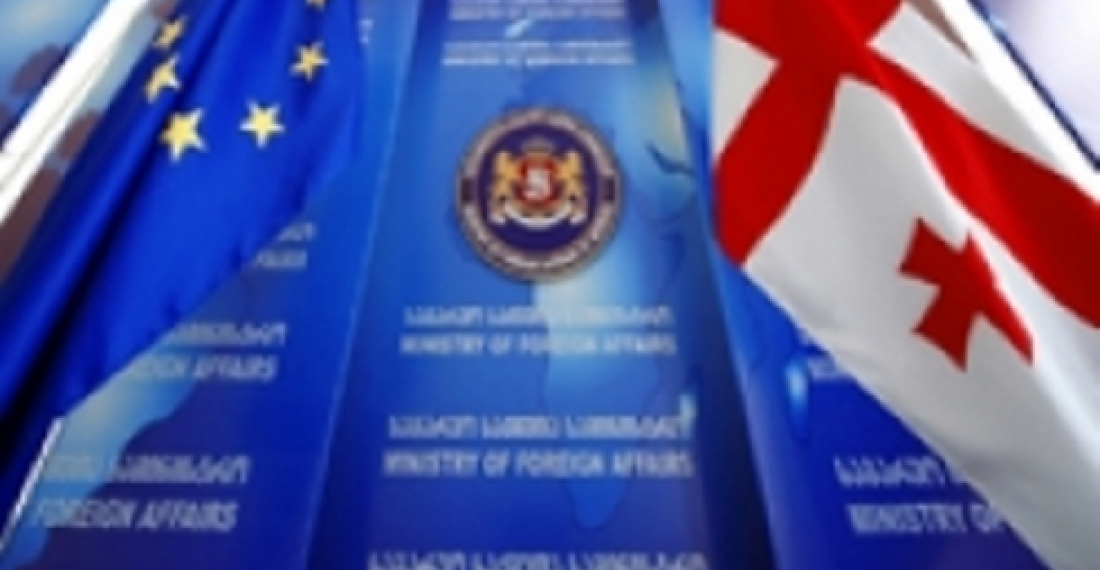Joseph Alexander Smith reports from Tbilisi for commonspace.eu on the latest round of discussions in the framework of the Geneva Process.
As the parties to the Geneva International Discussions leave Switzerland after their 30th meeting, participants are digesting some tough talk from Georgia on Russia's recent actions in the Abkhazia and South Ossetia.
The Geneva talks were established after the 2008 August War in Georgia and are co-chaired by representatives of the EU, UN and OSCE. Representatives from the US, Russia and Georgia, as well as Abkhazia and South Ossetia, attend as 'participants' on an individual basis rather than as country delegates.
The talks consist of two working groups, the first of which is aimed at addressing security issues on the ground, among them international security arrangements and the non-use of force. The second working group discusses humanitarian issues including freedom of movement, missing persons, access to water and cultural heritage in the conflict-affected areas.
Georgia's new representative at the Geneva talks, Deputy Foreign Minister Davit Dondua, who was attending the talks for the first time since his appointment in the wake of Maia Panjikidze's resignation in November, delivered a tough message to Moscow over relations with Abkhazia.
In November, Tbilisi slammed Moscow for its decision to sign a treaty on "alliance and strategic partnership" with Abkhazia. Officials said the treaty, which envisaged the creation of joint Russian-Abkhaz security forces and the extension of social services to the break-away territory, constituted a de facto annexation of Abkhazia by the Kremlin.
On returning from Geneva, Dondua told journalists that he had warned Moscow that any attempt to sign a similar treaty with Tskhinvali would be followed by "by strong assessments by the international community and will be taken as a step towards to the regions' annexation."
In another recent development, Georgia's new Foreign Minister Tamar Beruchashvili condemned Russian military drills held in South Ossetia at the beginning of December as "yet another destructive step" taken by Russia in violation of Georgia's sovereignty and territorial integrity.
Russia's representative Grigory Karasin left the talks without making any comment, while Ketevan Tsikhelashvili, Georgia's Deputy Minister for Reconciliation and Civil Equality, reported that the Georgian side did not get "clear responses from the de-facto representatives on a number of issues."
Although Russia, the US and Georgia have all recently reiterated their commitment to the Geneva Talks, the Abkhaz side called for a re-thinking of the format and agenda of the discussions earlier this year.
Ahead of the 29th round held in early October, the Abkhaz Foreign Minister Vyacheslav Chirikba suggested that the issue of the return of displaced persons should be dropped from the agenda. Abkhaz and South Ossetian participants, backed by the Russian negotiator, walked out of the previous round of talks held in June, accusing the Georgian side of "politicizing" the issue of the return of displaced people and refugees. Georgian negotiator Davit Zalakiani condemned the proposed changes as "destructive".
Since 2008, the Georgian government has annually tabled a non-binding resolution before the United Nations General assembly reiterating the right of return of all displaced people and refugees from Abkhazia and South Ossetia. The resolution was adopted this year on June 5 for the seventh consecutive year, with Russia voting against.
Tbilisi has become increasingly concerned in recent months about developments in its break-away territories. Abkhazia's former president, Aleksandr Ankvab, stepped down at the beginning of June at the instigation of parliament. His resignation was followed by snap presidential polls in August, which brought Raul Khajimba to power. Khajimba was the Kremlin's preferred candidate in presidential elections in 2004, but ultimately lost to Sergei Bagapsh. Khajimba is widely seen as favouring closer integration with the Russian Federation, in contrast to Ankvab, who has sought to balance close ties with Moscow with Abkhazia's sovereignty and political independence.
Meanwhile, in South Ossetia, elections in June delivered a parliamentary majority to Anatoly Bibilov's United Ossetia Party, which has previously advocated for integration into the Russian Federation. Although Russia announced that it had no plans to annex the territory as it did with Crimea earlier this year, reports emerged in late November that Moscow and Tskhinvali were drafting a "comprehensive treaty on integration" which will undoubtedly attract strident condemnation from Tbilisi and Georgia's foreign partners alike.
source: Joseph Alexander Smith filed this report from Tbilisi for commonspace.eu.







